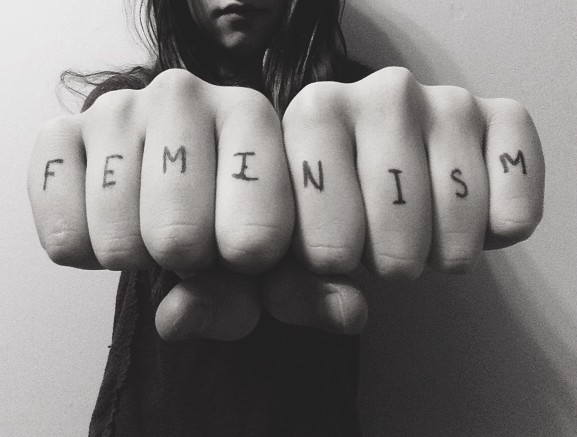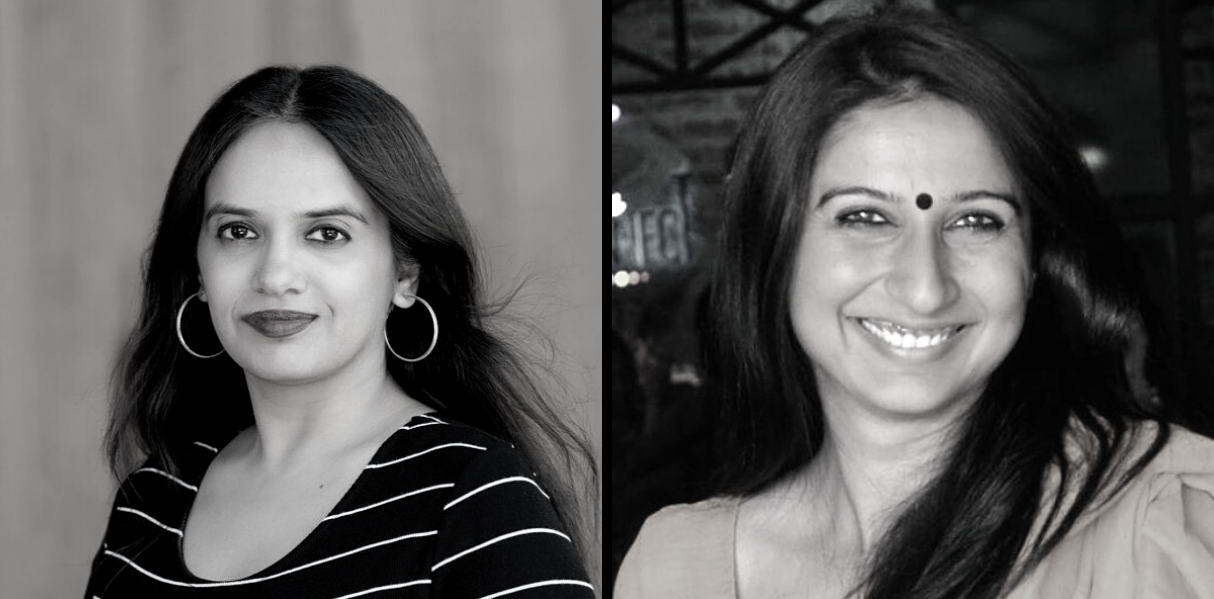Editor’s Note: In this ‘specials‘ article we feature a conversation between Ungender’s CEO and founder Pallavi Pareek with Feminism In India founder Japleen Pasricha and FII HR head Nalini Menon on diverse workplaces, leadership and women who lead and the challenges of building feminist leadership.
Written By: Ungender Blog Team
Pallavi: Setting up processes for a remote-structure is very different from setting up for a physically present team in one place. How has the journey been for the team so far?
It has been a challenge to kind of get to know everyone. We’ve had workshops and do team building exercises so there’s more interaction between the team. We don’t know how long we are going to work from home, but I think we’ve all found a rhythm now.
Pallavi: A feminist organization needs people who are aligned, with the idea of being ‘feminist’. How do you deal with the challenge of hiring?
Ours has been a journey. In 2013, I (Japleen) was reading this book called, Feminism in India, it’s an anthology. I then started a Facebook page called Feminism in India, which mainly served as an outlet for my frustrations with patriarchy, sexism and nearly everything else. It is only later that I started thinking about “why this page and what do I want from this?”
My idea was always to create a platform where people can read and write about Indian womens’ issues and about the feminist movement in India. In 2014, I veered towards a model that had everyday accessible, easy to read content, uses pop culture, uses multimedia, new media like videos and posters and talks about issues that were current. That is how FII grew.
Pallavi: Everybody who subscribes to this idea of feminism has been learning. Would you say the conversation around feminism or feminist subjects has changed?
We still get a lot of foolish comments when people talk about womens’ stories or stories that are important for women.
There’s a very traditional narrow understanding of specific women-related subjects like domestic violence, menstruation, these subjects are stereotypically associated with women. When we do a gender analysis of the budget, or discuss feminine finance, feminine economy, these issues are not seen as women’s issues. If you talk about rape or sexual harassment it becomes womens’ issues again. If we discuss minority lynching or Kashmir or about the Northeast, people ask “What has this got to do with feminism? Why not focus on more important issues?”
One thing we want to make clear is that being a feminist platform does not mean we are looking for only womens’ stories. We are looking for stories from a feminist perspective. For example, an article we published on the Hindu Succession Act and its being retrospective for women, even before 2005, asks what about Dalit women who historically and systematically have been denied right to property?

Everything is a woman’s issue.
Pallavi: So when you write about these contentious issues, hiring becomes very crucial. How do you communicate the message that writing for one gender doesn’t mean one is against a different gender?
We have a very strict affirmative action policy in place. Our preference is always for candidates from marginalised identities and this comes from an understanding of our editorial policy.
Given the kind of content that FII produces, if you’re unfamiliar with it, we believe it’s very important to refrain from appropriating lived experiences of individuals.
Our attempt is always to try and make it as inclusive and as intersectional as possible. For a feminist organisation, it’s very important to have a hiring department that is sensitised and also aware of the various gender identities and sexual orientations that exist, not just for hiring, but also in dealing with candidates.
There’s this one question that we asked everyone who is engaging with us in whatever manner. We ask them, what do you understand by intersectional feminism? I think for us, that is when we understand what the other person’s politics is and that it matches with our politics.
Sometimes what happens is, a lot of people, are sensitive to racial issues, issues regarding sexuality, gender, minorities but they don’t understand caste privilege. People grow up in environments where we have been made believe that caste doesn’t exist anymore, they imagine it is a thing of the past and urban areas are casteless. People imagine, for instance, that “it only happens, you know, in the villages of Haryana”.
We feel it’s extremely important to at least understand your caste privilege.
Here’s a list of books you must read to try and understand Diversity and Inclusion including the feminist point of view: 12 Books On Diversity And Inclusion For Indian Managers At Work
Pallavi: How do you keep empathy, for team members, as well as for yoursellves, given that a lot of what you write is also perhaps combative?
When a caste, gender or mental health story comes up, the editorial team sets the story in motion, has pictures for articles ready, the social media team is working on some kind of social media content, the video team is focusing on what kind of videos to make.
With respect to mental health, we understand that dealing every day with unpleasant news can take a toll on any individual and we have certain mechanisms, at a policy level. If you have a problem, you talk within the organisation and we help everybody. If one person is unable to do a certain task …then the other person picks up the task. We have been trying to organise support workshops for the focussing on building teams, including empathy.
Pallavi: What kind of inclusion policies have been adopted, right from the get go, at your organisation?
It’s always good to have a structure in place and something that one can build on. In the kind of content we produce, we try and get writers from a community to write about the community. Our policies are employee-centric.
Pallavi: How do you fundraise? Your work is considered not a very lucrative product or service in the market.
We haven’t sought investment. Our funding also comes from the development sector, currently by a Bangalore based media funding organisation that funds a lot of digital news media platforms. They don’t have a lot of feminist media platforms in their portfolio.
Pallavi: From the leadership angle, being women in business, what has been the experience?
Given that our name is Feminism in India, and we talk about feminist issues and social issues, we are automatically seen as a nonprofit and we have to repeatedly clarify that we are not. We identify as a social enterprise, we work on the cause and on the business model. Our structure has been our biggest challenge, to explain and convince funders that a feminist organisation and a feminist startup can have a business model.

Pallavi: The online medium allows open conversation, but you also have trolls. How do you handle it individually? And then how do you handle it as a team?
It has been quite difficult because the frequency of us being trolled is increasing day by day. A lot of times, what we have had to do is take down articles, we have had to anonymise the articles, we have to remove identifying information like links to the writers or Twitter profile of this book or you know, any, anything which identifies them, or change the name. Some team members get personally trolled.
When we see a troll attack, which we know is targeted organised and goes on for days, we get into the ‘do not engage’ mode.
I think that it is a really important thing to understand that people are more vile on the internet than they would be in real lives.
Pallavi: There is this point of view which suggests that if a woman is writing then it must be hatred against tmasculinity. Clearly this is a distorted understanding of feminism. Thoughts?
Conversations around gender have been normalised. It is good that people are talking about sexual violence, people are talking about rape. That it is not the woman’s fault. That kind of understanding is slowly coming to non-activist folks, even if it’s not a very nuanced understanding.
Pallavi: What does it actually mean when you say that you are a feminist organisation?
That’s actually what we need people to understand. Because for organisations like us, there are certain policies, processes, procedures, culture and inherent traits.
From our company’s perspective,we are an all-women team. What companies or even startups can do is take small steps towards becoming a feminist organization. When we talk about women, we have to be conscious of the fact that right now, the word ‘women’ gets equated with this Hindu upper-class, heteronormative women. In a company where there are all kinds of people, it is important to mention things like menstruation leave, flexi-work hours, mother-friendly workplaces. Equal remuneration for employees is like a very basic thing that you should do to become a feminist organisation.
Of course, there is no checklist and no perfect way to become a feminist organisation.
You can also watch the whole coversation on FB here.
Video Highlights
04:46 – People Alignment In A Feminist Organisation
11:37 – People’s Understanding Of What Feminist Writing Is
25:57 – Building An Empathetic Team
34:27 – Basic Policies At Our Workplace
60:15 – Basic Norms For A Feminist Workplace
Our Key Takeaways




Also #MustRead:
The Film Industry Has Much Greater Female Participation Now, Says Anupama Chopra
Bringing Your Skill To The Table Is All That Should Matter In Hiring, Says Nandita Gurjar
Ungender Insights is the product of our learning from advisory work at Ungender. Our team specializes in advising workplaces on workplace diversity and inclusion. Write to us at contact@ungender.in to understand how we can partner with your organization to build a more inclusive workplace.










